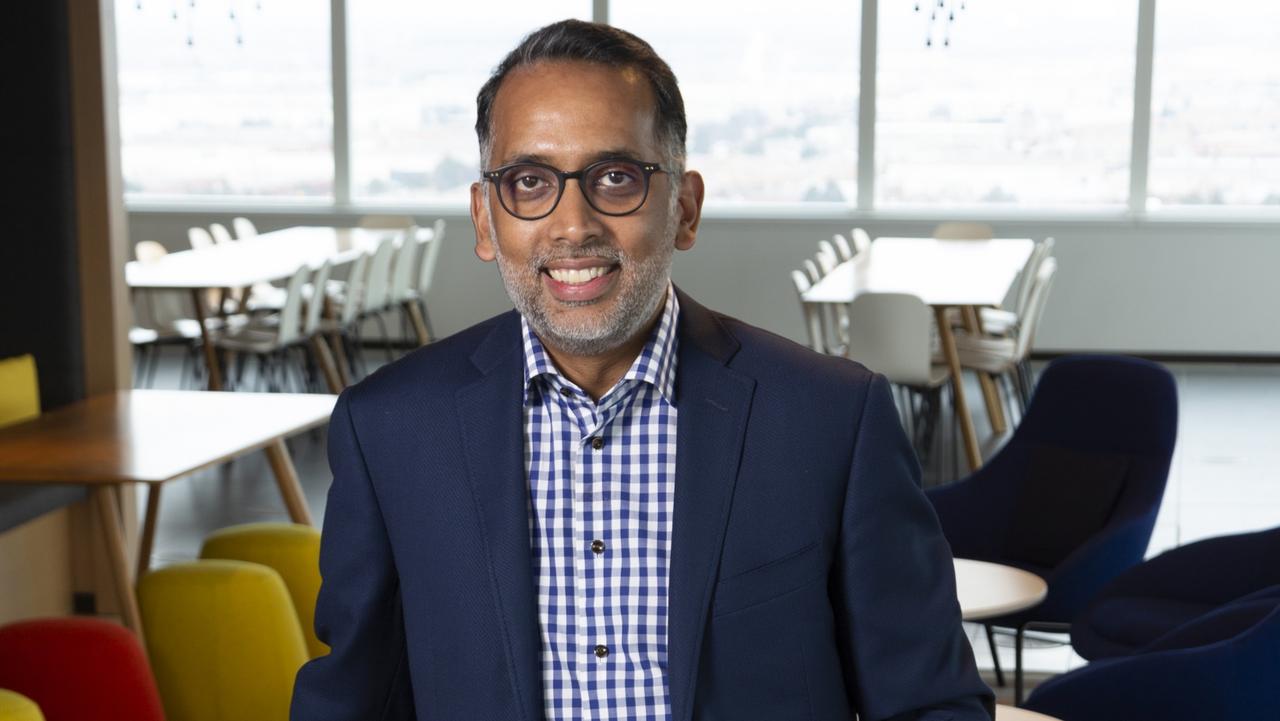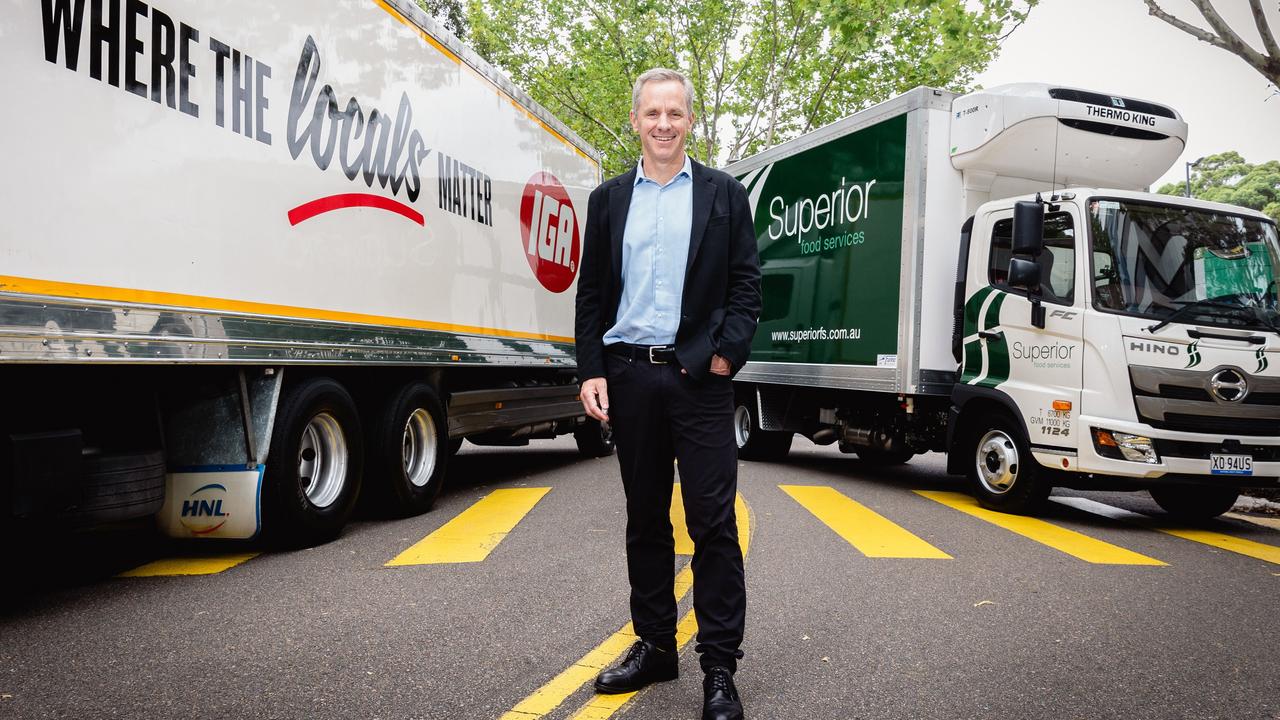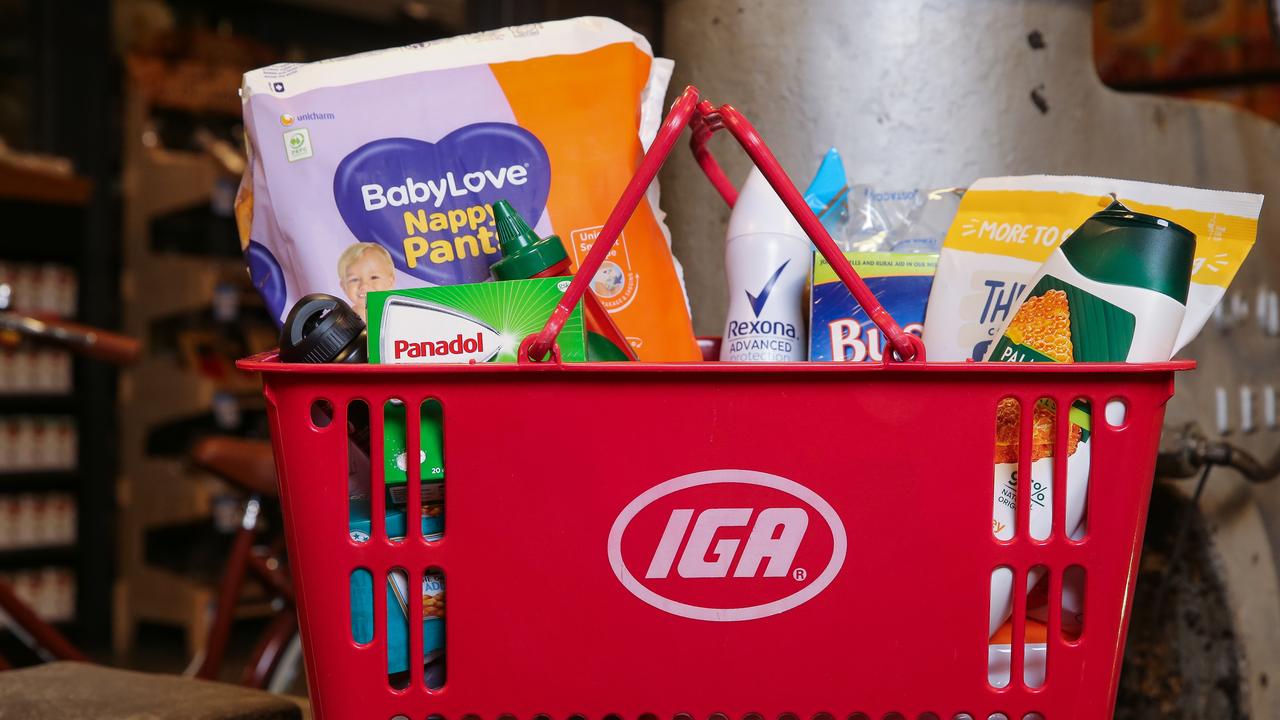Pain not over at AI tragic Appen after being burnt by rock star CEO
In a sorry tale for Aussie tech, the player in the AI space simply misread where its Silicon Valley customers were heading. And shareholders have paid dearly.

Business
Don't miss out on the headlines from Business. Followed categories will be added to My News.
The sorriest tale of Appen is the ASX-tech services play rushed to tap investors for nearly $100m across two separate raisings in under a year, yet there is next to nothing to show for it.
The rockstar tech chief executive Armughan Ahmad, with his lucrative $US7m ($10.8m) share-based sign-on fee has been booted; Appen’s second biggest customer has gone; Australia’s one-time tech darling has limited growth options, putting it on very shaky ground.

Appen shareholders must be wondering what hit them in the past two years, where a $9.50 takeover approach from Canada’s Telus simply vanished; three chief executives and several others have cycled through management; and hundreds of millions in losses were been booked.
Go back to the Covid-era and Appen’s shares broke through $35 each as it joined other Aussie tech stocks to ride the wave of near-zero cash rates. This give the North Sydney-based tech player a market cap of $4.2bn, representing a staggering 40 times underlying earnings.
Now Appen is languishing at around 26 cents each. At this rate it would struggle to fetch $60m in a buyout, including the $32m cash it has sitting in the bank. It’s a spectacular fall for a foundation member of the WAAAX stocks – Australia’s cut-price answer to the Magnificent Seven.
Appen chairman Richard Freudenstein on Monday had no choice but to punt his hand-picked chief executive, the former Dell vice president and KPMG partner who barely made one year in the role. With two raisings and a strategy reset during the year, Ahmad was in a hurry but also took his eye off the ball.
In January, Appen’s second-biggest customer Google walked out the door, taking with it a third of the tech player’s revenue. That exit came just weeks after Appen raised $30m from investors, its broker Barrenjoey selling shares at 55c each. That also followed the May raising of $60m at $1.85 each.
There are bigger questions around how Appen could implode so viciously and whether investors knew all the facts when they injected more funds into the business last December.
Appen said last month it had no prior knowledge of Google’s decision to terminate the contract. Surely someone inside Appen from the CEO down had the job of looking after the company’s biggest contracts and could sense change was sweeping Silicon Valley.
At least Freudenstein has acknowledged Seattle-based Ahmad’s position was unsustainable and pushed his CEO out immediately. The question now is after approving the two capital raisings, how long can Freudenstein and his board hang on?
Ahmad won’t see most of his sign-on bonus given the bulk was set to vest over two years. However, there will still be questions about how much is yet to come his way during his one-year while shareholders saw nothing but losses.
‘AI light’
Anyone would think Appen with a business model grounded in AI would be tearing away right now. But this is the misconception about the space that it operates in.
Unlike a conventional big tech, Appen is essentially a contractor, with its performance rising and falling on wins. It relies on ultra-cheap human labour, sometimes tens of thousands of people at a time, doing what it describes as “digital microwork” to clean, scrub and teach AI models.
This is the deeply unglamorous side of tech; the hard grunt of very basic testing and monitoring. This is a highly-contested space, including with rivals in China, and Appen was always at risk of seeing its business undercut by the next operator.
When Freudenstein, the former Foxtel boss, was appointed to head up the Appen board in late 2021, the tech services player was already running out of time.
Appen may have been a high-growth business for two decades but under successive management it failed to evolve with the cutting-edge AI models being developed.
This meant that the labour services offered were becoming less valuable for Appen’s big tech customers. Indeed the likes Google and Facebook are now spending tens of billions of dollars building their own sophisticated models and rely less on humans to perform the scrubbing, testing and uploading.
With investors out of patience, this leaves Appen with limited options to invest and is likely to push it into lower-margin business lines. Now it is up to new boss Ryan Kollin – another former Telstra engineer – to figure out where to take Appen.
In one small win for Appen’s investors, the Toronto-based Kollin was promoted from strategy executive and he won’t be needing a sign-on fee.
Renovation for Metcash
Metcash chief Doug Jones is doing some of his own renovations with a three-way $558m deal on Monday to expand the grocery wholesaler’s footprint in food distribution as well as hardware.
For Jones the three buyouts take Metcash into more upstream areas – including one in light manufacturing – but are designed to continue his push to move Metcash away from being a traditional wholesaler to having a more integrated offering for its franchise partners.
Unlike Coles or Woolworths that own their supermarkets directly, Metcash sits behind retailing brands including the IGA supermarket chain, liquor and nationwide hardware brands Home and Mitre 10.

This “independent” model can be a mixed blessing as Metcash can’t capture all the efficiencies in operating a national supermarket chain, undermining its competitiveness against bigger rivals. However Jones argues the business model also means Metcash has strong local management teams that are more responsive to customers.
The acquisitions outlined Monday – one in grocery and two in hardware – give Metcash a much broader offering for its customer base as well as greater control over its supply chain. Each deal sits squarely in the business-to-business offering.
Metcash is tapping institutional investors for $300m under a pro-rata placement to help fund the deal, with the balance to be paid for using existing debt and cash facilities. Metcash shares remain under a trading halt while the raising is underway.
The biggest of the transactions is the $412m for the Superior Food Services that distributes fresh and chilled foods to the “last mile” of thousands of pub, club and cafe customers across the country. The sale is through owner private equity player Quadrant and is pitched at nine times earnings and Metcash is banking on $14m in annual synergies to make the deal earnings positive.
The acquisition gives Metcash an additional $1.3bn in national sales, and it cements its position as the largest food distributor food and liquor distributor to independent operators. The Superior deal follows Woolworths buying a 65 per cent stake in the market leading food distributor PFD for more than three years ago.
Competition regulator the ACCC will scrutinise the Superior Foods acquisition, particularly given the extra political attention around supermarkets getting bigger during an inflation bubble. But it also poses the question of horizontal expansion by Woolworths and now Metcash is changing the dynamics of the commercial market.

However, Jones remains confident in his position. He points out Metcash’s supermarket network in aggregate is well behind Coles and Woolworths. At the same time Superior operates in a highly-fragmented pubs and cafes market. The top three food distributors have a 30 per cent share of the market.
“We’re a small player in the grocery market, which is separate and distinct from the food service market. And Superior have a 6 per cent share of its market,” Jones tells The Australian.
“We think this is good for customers. And and we think it’s good for suppliers too. Part of our operating model at Metcash is to be an effective route to market for our suppliers. We take very seriously our responsibility to serve them and to earn their business. And I think that this just strengthens the offering that we can provide them”.
He believes that over time, Superior’s delivery network can also be used to boost delivery to IGA for prepared meals in city stores or fast-moving chilled foods including meats and seafood.
Metcash has undertaken a string of bolt-on hardware deals in recent years and on Monday, it extended this with two more that puts it closer to builders and tradies further up the retail chain.
This includes, the $82.2m South Australian-based Bianco Construction Supplies that also has ten sites in Northern Territory. This gives Metcash a market builders early in the construction process with products like reinforcing mesh, concrete slab and structural steel.
The other deal is the Victorian-based Alpine Truss for an enterprise value of $64. Alpine manufactures roof trusses and wooden wall frames from its factory in Wangaratta in the state’s central region.
Jones, a former top executive with global powerhouse Walmart, took charge of Metcash under two years ago and set about talking up the latent growth potential of the Metcash business.
This includes driving the different businesses, across hardware, grocery distribution and professional tools supplies harder. He describes Metcash as a platform that supports a number of independent retailing franchises and he wants it to become more responsive in doing this.
More recently he appointed the former JB Hi-Fi boss Richard Murray to head up the Total Tools building supplies business, this is a brand that now goes head-to-head with Wesfamers’ recently-acquired Adelaide Tools brand.
Metcash shares last traded at $3.64 with the placement expected to get away at an 8 per cent discount. It was placed under a trading halt last Thursday as talks were being finalised.
johnstone@theaustralian.com.au
Originally published as Pain not over at AI tragic Appen after being burnt by rock star CEO









